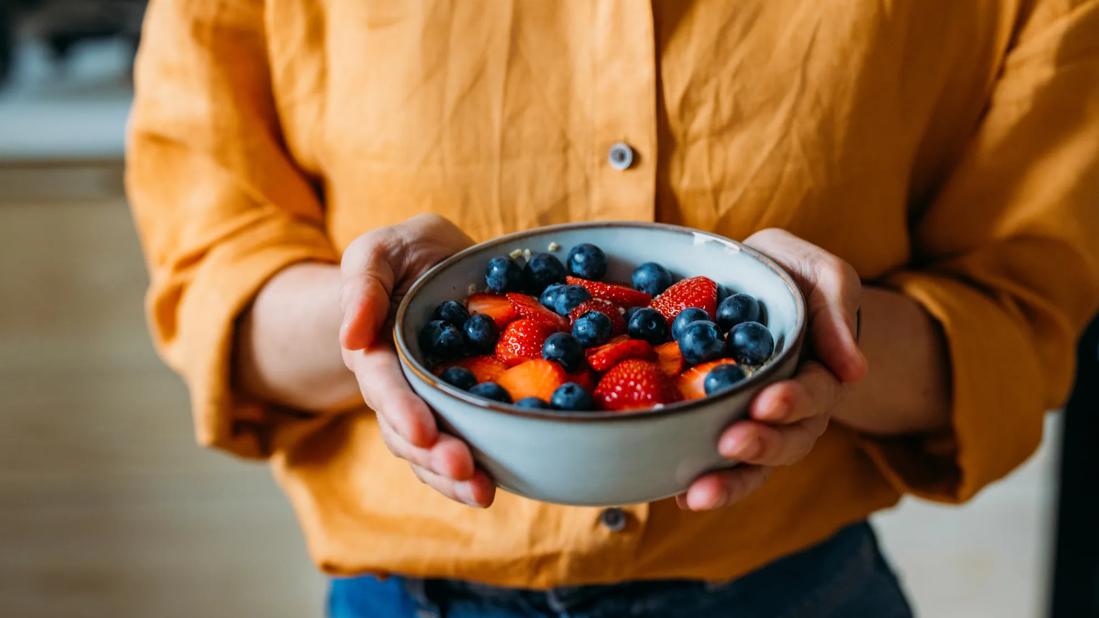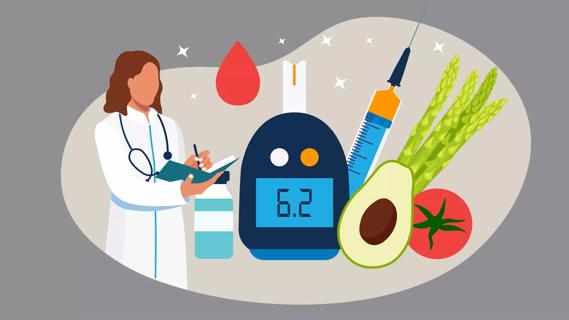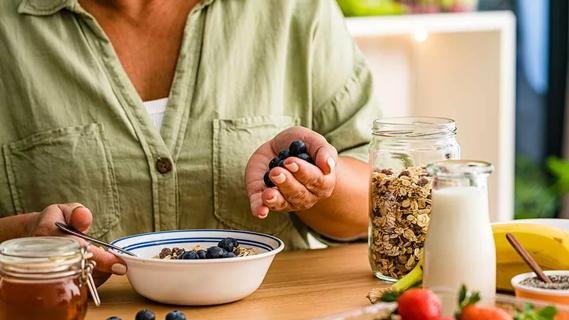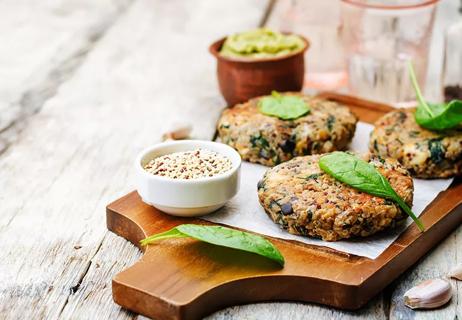Fresh or frozen fruits that are low on the glycemic index should be your go-to, as they’re full of fiber and other nutrients

Fragrant, fuzzy peaches. Juicy, sweet watermelon. Tart and tangy berries. There’s nothing like fresh-picked fruits available at farmers markets or produce stands near you.
Advertisement
Cleveland Clinic is a non-profit academic medical center. Advertising on our site helps support our mission. We do not endorse non-Cleveland Clinic products or services. Policy
But is fruit bad for people with diabetes? If you have diabetes, you might be a little wary of nature’s candy and the sugars they hold.
“But don’t be scared of fruit,” says registered dietitian Kate Patton, MEd, RD, CSSD, LD.
Patton shares which fruits are best to eat if you have diabetes and how to make them a part of your healthy diet.
Yes! While fruit contains carbohydrates that your body processes into sugars, you need healthy carbs found in fruit to help fuel your brain and red blood cells. And though fruit contains natural sugars, its high fiber content balances the sugars.
“Fiber slows down digestion,” explains Patton. “That helps us feel full longer and prevents spikes in blood sugar.”
Plus, fruit is packed with vitamins, minerals, fiber and antioxidants that may help lower your risk of cancer and heart disease.
All fruits are good for you, even if you have diabetes. But consider using the glycemic index — a way to classify foods that contain carbohydrates and how quickly they may raise your blood sugar — to help you make the best choices.
The glycemic index is based on a scale of 0 (zero) to 100. Low glycemic foods have an index number of 50 or less. Low glycemic fruits, which won’t cause major swings in your blood sugar, include:
Advertisement
Overall, the best fruit for people with diabetes — and everyone, really — is fresh fruit. Whole fresh or frozen fruits should be your go-to, as they’re full of fiber and other nutrients.
“Eat the rainbow. Different colors of fruits and vegetables have different vitamins, minerals and antioxidants,” shares Patton. “To get all the good stuff, look for a ROYGBIV of fruits and veggies — from red strawberries to deep purple blackberries and all the colors in between.”
There aren’t any fruits that are considered bad. But some fruits are high on the glycemic index, meaning they can cause a quick rise in your blood sugar and have an index number of over 70.
While you don’t need to avoid these high glycemic fruits, you should limit or eat them in moderation:
Another tip? Processed fruits like applesauce and canned fruits aren’t as good for people with diabetes, as they have less fiber and might have added sugar, and, therefore, can increase blood sugar more quickly.
Choose canned fruit packed in juice instead of syrup and natural applesauce without added sugar. Dried fruits can also be healthy, Patton says, but watch your portion size and choose types without added sugar. For example, two tablespoons of raisins contain as many grams of carbohydrates as a small apple.
“Also, fruit juice has a lot of concentrated sugars without any fiber, so it can increase blood sugars quickly,” she cautions.
If you’re really craving juice, limit your portion to a half-cup serving.
Dietary guidelines recommend five servings of fruits and vegetables every day. That’s true whether or not you have diabetes.
As fruits have more calories and sugar than veggies, try to strike a balance. Patton recommends breaking up your five servings into three veggie servings and two fruit servings.
Also, try to space out your fruit throughout the day. (In other words, don’t eat an entire bag of grapes in one sitting.)
“In general, one serving is a small- to medium-sized piece of whole fruit (about the size of a tennis ball), or 3/4 to 1 cup of fruit like melon or berries,” she clarifies.
It’s a common misconception that fruit is bad for people with diabetes. But fruit is part of a healthy diet and can be enjoyed in moderation.
Remember: Education is key. If you have questions about what fruit to eat and how much, it’s always smart to get guidance from nutrition experts before you dive into that bowl of watermelon.
“Check in with a diabetes educator or a registered dietitian to develop a healthy meal plan,” Patton advises.
Advertisement
Advertisement

Sign up for our Health Essentials emails for expert guidance on nutrition, fitness, sleep, skin care and more.
Learn more about our editorial process.
Advertisement

Hot, humid weather can affect your blood sugar levels and even cause dehydration or heat stroke

The good news? Prediabetes can be erased with healthy lifestyle changes, including eating more nutritious foods

Adding nuts like pistachios, almonds or pecans to your diet can help manage blood sugar levels

A diabetes diagnosis, new or long-standing, can trigger reactions like grief, stress, depression and frustration, but symptom relief and help are available

The short answer: Yes, but you need to eat it in moderation and keep track of how much you consume

Sweet potatoes are great, but sweetened drinks aren’t so great

Some sweeteners may have health risks, so it’s best to keep your intake moderate

Lifestyle changes like diet and exercise can help

Even small moments of time outdoors can help reduce stress, boost mood and restore a sense of calm

A correct prescription helps your eyes see clearly — but as natural changes occur, you may need stronger or different eyeglasses

Both are medical emergencies, but they are very distinct events with different causes